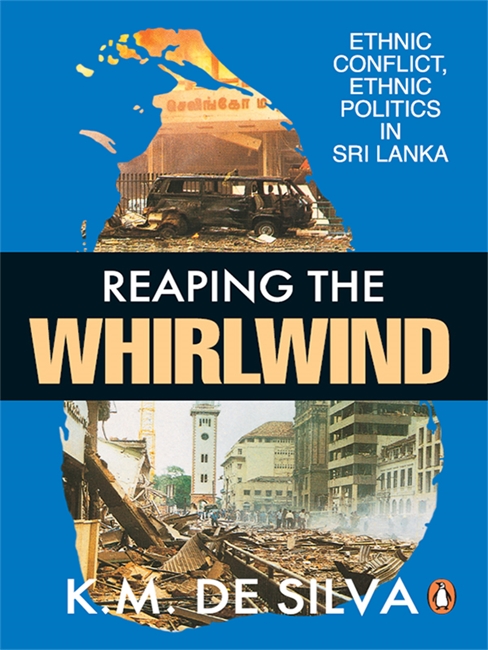
© 2020 Penguin India

A critical analysis of the ethnic conflict in Sri Lanka In the eighties, Sri Lanka, once considered the ‘model’ colony, was torn apart by ethnic strife between the predominantly Buddhist Sinhalas, constituting almost threequarters of the island’s inhabitants, and the numerically fewer Tamils, who were a mix of Hindus, Christians and Muslims. Massacres occurred after the riots of May 1983, and over time about 1,25,000 Tamils entered India as refugees, fleeing from a virtual civil war which still afflicts the north of the island. The author, a renowned Sri Lankan analyst of global ethnic conflict, discusses the historical reasons behind the ethnic violence, especially the growth of the Sinhalas’ feeling of being a beleagured minority despite their numerical strength. Analysing the present conflict, he shows how the language policy of ‘Sinhala Only’, followed by the government in the sixties, supplanted religion as a divisive factor and how rivalry over educational and employment opportunities fuelled the schism. Bringing the story up to the present, de Silva examines the role played by Indian and Tamil Nadu politicians, and President Kumaratunga’s efforts towards a devolution of power to the Tamil Provinces. But given the LTTE’s acceptance of nothing less than Eelam, he sees little hope of an early end to the violence that has racked Sri Lanka for almost two decades now.
Imprint: India Penguin
Published: Oct/2000
ISBN: 9780140270655
Length : 416 Pages
MRP : ₹399.00
Imprint: Penguin Audio
Published:
ISBN:
Imprint: India Penguin
Published: Oct/2000
ISBN: 9789351184287
Length : 416 Pages
MRP : ₹399.00
A critical analysis of the ethnic conflict in Sri Lanka In the eighties, Sri Lanka, once considered the ‘model’ colony, was torn apart by ethnic strife between the predominantly Buddhist Sinhalas, constituting almost threequarters of the island’s inhabitants, and the numerically fewer Tamils, who were a mix of Hindus, Christians and Muslims. Massacres occurred after the riots of May 1983, and over time about 1,25,000 Tamils entered India as refugees, fleeing from a virtual civil war which still afflicts the north of the island. The author, a renowned Sri Lankan analyst of global ethnic conflict, discusses the historical reasons behind the ethnic violence, especially the growth of the Sinhalas’ feeling of being a beleagured minority despite their numerical strength. Analysing the present conflict, he shows how the language policy of ‘Sinhala Only’, followed by the government in the sixties, supplanted religion as a divisive factor and how rivalry over educational and employment opportunities fuelled the schism. Bringing the story up to the present, de Silva examines the role played by Indian and Tamil Nadu politicians, and President Kumaratunga’s efforts towards a devolution of power to the Tamil Provinces. But given the LTTE’s acceptance of nothing less than Eelam, he sees little hope of an early end to the violence that has racked Sri Lanka for almost two decades now.